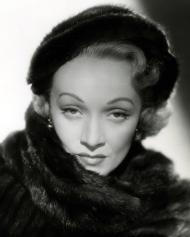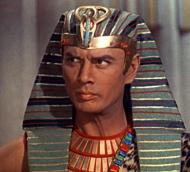Cine s-a întâlnit cu Marlene Dietrich?
John Fitzgerald Kennedy datează Marlene Dietrich de la ? până la ?. Diferența de vârstă a fost de 15 ani, 5 luni și 2 zile.
Jean Gabin datează Marlene Dietrich de la ? până la ?. Diferența de vârstă a fost de 2 ani, 4 luni și 20 zile.
Yul Brynner datează Marlene Dietrich de la ? până la ?. Diferența de vârstă a fost de 18 ani, 6 luni și 14 zile.
John Wayne datează Marlene Dietrich de la ? până la ?. Diferența de vârstă a fost de 5 ani, 4 luni și 29 zile.
Wilhelm Michel datează Marlene Dietrich de la până la ?.
Erich Maria Remarque datează Marlene Dietrich de la până la ?. Diferența de vârstă a fost de 3 ani, 6 luni și 5 zile.
Marlene Dietrich

Marie Magdalene „Marlene” Dietrich (pronunțat: [maɐˈleːnə ˈdiːtrɪh]; n. , Rote Insel(d), Berlin, Regatul Prusiei – d. , Paris, Franța) a fost o actriță și cântăreață germană.
Este prima actriță germană care a ajuns celebră în Hollywood. De-a lungul carierei, Dietrich s-a reinventat constant, începând a fi cântăreață de cabaret, fată din cor și actriță în filme germane în Berlinul anilor '20, stea de la Hollywood de-a lungul anilor '30, și în final, o interpretă internațională, devenind una din idolii secolului al XX-lea. Dietrich a fost bisexuală. În 1939 Dietrich a devenit cetățeană a Statelor Unite.
Dietrich a fost cunoscută pentru contribuția sa umanitară din timpul celui de-al Doilea Război Mondial. Pentru munca sa în ridicarea moralului soldaților din primele linii Dietrich a primit numeroase onoruri din Franța, Israel, Belgia și Statele Unite. În 1999, Institutul American de Film o listează pe locul nouă în topul celor mai desăvârșite actrițe ale Hollywood-ului din perioada clasică.
Citește mai mult...John Fitzgerald Kennedy

John Fitzgerald Kennedy (/d͡ʒɑn fɪtsˈd͡ʒɛɹəld ˈkɛnədi/ ), dit Jack Kennedy (/ˈd͡ʒæk ˈkɛnədi/), généralement appelé John F. Kennedy et également connu sous ses initiales JFK, né le à Brookline (Massachusetts) et mort assassiné le à Dallas (Texas), est un homme d'État américain. Membre du Parti démocrate, il est le 35e président des États-Unis, en fonction du jusqu'à sa mort.
Après avoir combattu dans la guerre du Pacifique, il entre en politique en 1946 et y exerce comme représentant puis sénateur du Massachusetts. À 43 ans, il remporte l'élection présidentielle de 1960 face à Richard Nixon et devient le plus jeune président élu des États-Unis, et également le plus jeune président à mourir, moins de trois ans après son entrée à la Maison-Blanche, à l'âge de 46 ans. En outre, il est le premier président américain de religion catholique.
Il laisse son empreinte dans l'histoire des États-Unis par sa gestion de la crise des missiles de Cuba, son autorisation du débarquement de la baie des Cochons, son engagement pour le traité d'interdiction partielle des essais nucléaires, le programme Apollo dans le cadre de la course à l'espace, son opposition à la construction du mur de Berlin, sa politique d'égalité des sexes et son assassinat. Ses prises de position en faveur de l'accord général sur les tarifs douaniers et le commerce lui valent d'être respecté jusque chez les républicains, et le mouvement afro-américain des droits civiques — qu'il soutient, voulant mieux intégrer les minorités dans la société — qui prend place durant sa présidence annonce la déségrégation.
En campagne pour sa réélection en vue de l'élection présidentielle de 1964, il circule dans Dallas le à bord d'un véhicule découvert devant un public nombreux : alors qu'il traverse Dealey Plaza, des coups de feu retentissent et des tirs l'atteignent mortellement. Malgré la désignation par la Commission Warren de Lee Harvey Oswald comme le seul coupable, les circonstances de son assassinat font l'objet de nombreuses enquêtes, ouvrages écrits et filmés, interprétations et théories du complot.
Citește mai mult...Marlene Dietrich

Jean Gabin

Jean Gabin (născut Jean-Alexis Moncorgé; n. , Paris, Franța – d. , Neuilly-sur-Seine, Île-de-France, Franța) a fost unul dintre cei mai mari actori de film francezi. El a jucat alături de actori ca Fernandel și Louis de Funès. Printre filmele în care a jucat se numără Clanul sicilienilor, Mizerabilii și serialul Maigret.
Citește mai mult...Marlene Dietrich

Yul Brynner

Yul Brynner (în rusă Юлий Борисович Бринер, transliterat: Iuli Borisovici Briner; n. , Vladivostok, Republica din Orientul Îndepărtat – d. , New York City, New York, SUA) a fost un actor american de origine elvețiană și rusă. A câștigat Premiul Oscar în 1956 pentru rolul din filmul Regele și eu.
Citește mai mult...Marlene Dietrich

John Wayne

John Wayne (n. , Winterset(d), Iowa, SUA – d. , Westwood, California, SUA) a fost un actor american, vedetă a nenumărate western-uri.
S-a numit inițial Marion Robert Morrison, dar părinții i-au schimbat numele în Marion Michael Morrison pentru că au dorit ca următorul lor fiu să poarte numele Robert. Numele de scenă John Wayne (de la generalul „Mad Anthony” Wayne) i-a fost dat de regizorul Raoul Walsh, cel care de altfel l-a și descoperit pe Wayne, cu ocazia filmării în 1930 a westernului The Big Trail, în care Wayne juca rolul principal. Prietenii și admiratorii îl numeau însă The Duke, nume dat de vecinii săi din Glendale, California.
În 1969 a câștigat Oscarul pentru rolul său din filmul True Grit. În patru decenii de actorie Wayne a apărut în 250 de filme. Dintre acestea, majoritatea au fost regizate de John Ford, iar cele mai importante filme ale sale au fost She Wore a Yellow Ribbon (1949) și The Quiet Man (1952).
John Wayne a fost căsătorit de trei ori și a avut șapte copii și 16 nepoți. În ultimii peste zece ani din viață Wayne s-a luptat cu cancerul, mai întâi la plămâni pentru ca mai apoi decesul să fie provocat de cancer stomacal.
Citește mai mult...Marlene Dietrich

Wilhelm Michel
Wilhelm Michel, genannt Willy Michel (geboren 1901; gestorben Juni 1988) war ein deutscher Bäcker, Kommunalpolitiker in Hannover, Wehrwirtschaftsführer für Niedersachsen sowie Liebessubjekt der Schauspielerin Marlene Dietrich. Die Anfang des 21. Jahrhunderts aufgefundenen Liebesbriefe der Dietrich an Wilhelm Michel gelten als „die frühesten bislang bekannten Dokumente des Weltstars.“
Citește mai mult...Marlene Dietrich

Erich Maria Remarque

Erich Maria Remarque (; German: [ˈeːʁɪç maˈʁiːa ʁəˈmaʁk] ; born Erich Paul Remark; 22 June 1898 – 25 September 1970) was a German novelist. His landmark novel All Quiet on the Western Front (1928), based on his experience in the Imperial German Army during World War I, was an international bestseller which created a new literary genre of veterans writing about conflict. The book was adapted to film several times. Remarque's anti-war themes led to his condemnation by Nazi propaganda minister Joseph Goebbels as "unpatriotic". He was able to use his literary success and fame to relocate to Switzerland as a refugee, and to the United States, where he became a naturalized citizen.
Citește mai mult...